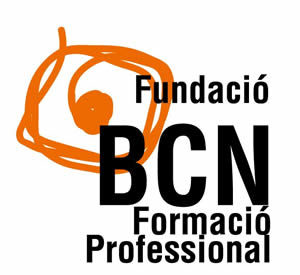The Cultural and Creative Industries (CCI) sector in the province of Barcelona is a significant source of innovation and growth. By combining traditional art with new technologies, CCIs are consistently evolving and producing new markets and opportunities for professionals from various fields.
With over 8,000 companies in the AMB and 115,000 jobs in the province of Barcelona, the CCIs are a crucial sector for the local economy. The growth in employment in this sector has been significant, with a 17.4% increase in the last 22 years, demonstrating its growing importance.
Vocational Training (VET) has a crucial role in developing qualified professionals for the CCIs. In the Metropolitan Region of Barcelona, more than 9,000 individuals are currently undergoing training in the VET system, which provides comprehensive preparation in both traditional aspects and the latest emerging technologies.
Despite facing several challenges, such as integrating emerging technologies and the need for generational change, Cultural and Creative Industries still play a vital role in preserving the culture and tradition of the region. To tackle these challenges and keep up with the developments in the sector, initiatives have been taken such as training new professionals in traditional areas. This includes artisans with knowledge of heritage, and digitizing professionals in the sector. New software is also being integrated to aid in the response to these challenges.
Les Tres Xemeneies, the Cultural District of L’Hospitalet de Llobregat, the Festival Dansa Metropolitana and the Taula de Barcelona Creativa are among the current metropolitan projects that significantly impact the CCI.
On April 22nd, the study was presented with the welcome addressed by Anna Martín, Deputy Mayor of Education, Culture and Community of El Prat City Council. Our president, Sara Berbel, highlighted the dynamics and impact of the cultural sector, emphasizing its constant evolution. With 4% of the business fabric and 8,000 companies in the Metropolitan Area of Barcelona (AMB), the cultural sector is a key economic engine that generates a significant number of jobs. Furthermore, driven by the latest technologies, this sector is diversifying towards new expressions of creativity in digital formats such as multimedia production, creating new markets and opportunities.
Gemma Badia, CEO of social and equality policy, emphasizes the importance of Vocational Training as essential preparation for the cultural sector’s future.
Angel Tarriño, Javier Gracia, and Victoria Sanjuan, who are the authors of the study and technicians of the VET Observatory, have provided some revealing data. The study shows that VET has a significant presence in the cultural field, and it is adapting to the trends in the sector, including digitalization, audiovisual, artificial intelligence, and 3D production. In Barcelona, it represents 7% of all companies, while in the AMB, it reaches 4%.
Javier Gracia analyzes the current trends and conditions of the industry, while Victoria Sanjuan identifies the most in-demand professional profiles in various fields. They suggest several actionable steps, including promoting vocational training that combines both theory and practice, supporting artisanal crafts by integrating digital skills, and incorporating technological advancements in teaching and professional practices.
Then, Neus Pons Pena, our manager-director moderated a round table where Mr. Juan Pedroche, Director of the Institute of Audiovisual Techniques and Spectacle of Barcelona, Mr. Ricardo González, Professor at the Institut La Mercè, Ms. Pia Bosch, Director of Administration and Human Resources at Teatre Lliure, and Mr. Eduard Gil, Director of the Audiovisual Cluster of Catalonia, will offer their perspectives and reflections on the challenges and opportunities presented in their respective fields.
We close the event with Ester Pujol, the Director of Social and Economic Development of the AMB, who offers us a comprehensive vision of the different challenges facing the sector: social, human, economic capital, the adoption of new technologies and the recognition of professionals.
The study:





